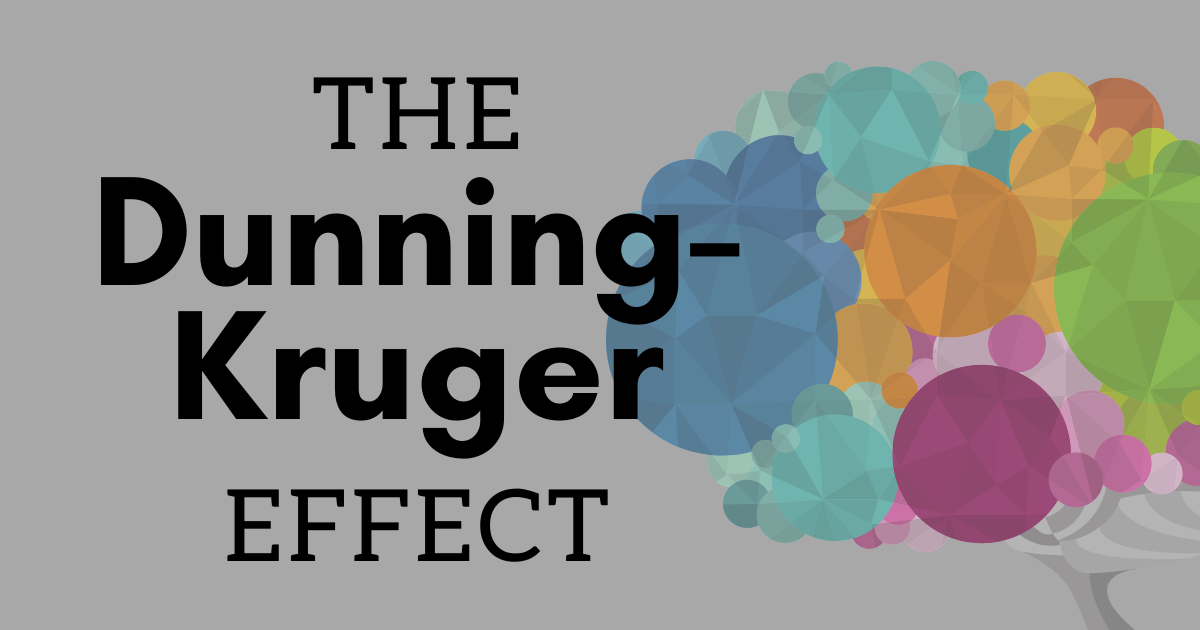Imagine you are in a room full of people. Maybe you know them; maybe you don’t. Rate yourself as a driver compared to the rest of them…worse than average? average? better than average? If you’re like most folks, you’ll rate yourself as better than average. The trouble is that most of the people in the group would rate themselves as better than average. If we were all above average, then the average wouldn’t be the average. In short, we can’t all be better than average. Now, imagine you’re in a room full of surgeons. Rate yourself as a surgeon. Unless you’re a surgeon, you’re likely to rate yourself as worse than average.
This is an example of the Dunning-Kruger effect.
In areas where we have some competence, we estimate our skills as higher than they really are because we don’t know what we don’t know. The more competent we are, the more we realize we don’t know. Charles Darwin summed this up well when he said, “ignorance more frequently begets confidence than does knowledge.”
In my opinion, nowhere is this more pronounced than in the field of investments. This is a field where people say ridiculous things like, “I’ll sell when I get my money back,” or “no way; that’s a $20 stock,” or “XYZ stock has been good to me.” Can I just politely say that when you say things like this, you have no idea what you’re talking about?
With that endearing sentence, let me share some things from a recent Barron’s article (“5 Mental Tricks to Make You a Better Investor,” February 1, 2019) that was intended to help investors overcome some of their bad emotional and intellectual wiring, and counteract things like the Dunning-Kruger effect. Here are the five tips.
- You hold losing investments for too long. Our tendency is to say, like a long-time client of mine says, “I’ll sell when I get my money back,” as if it’s our birthright as investors to always break even. It’s difficult to admit a mistake, and realized losses represent proof of a mistake, but consider the sale proceeds an opportunity to redeploy the funds to a better place.
- On the other hand, we sell our winners too soon. If a realized loss is a sign of failure, then a realized gain is proof that we really are smart investors. Studies of actual brokerage accounts show that winning stocks that are sold do better than the losing stocks that are held.
- Getting right at the Dunning-Kruger effect without mentioning it, the third observation was that investors tend to be overconfident. One example of this is investors buying individual stocks, when the vast evidence is that the very best investors do a poor job of performing indexes, many of which are investable via various investment products.
- Because of our tendency to seek out patterns in the chaos around us, we tend to see patterns where there are none. For example, there is little evidence of athletes’ hot streaks—and certainly not your own investment hot streaks. The suggestion from Barron’s is to “study what you did and didn’t do, keep records, and look at what’s working [and what’s not].”
- The last suggestion is particularly relevant given the fourth quarter of 2018’s volatility. When stocks are falling and you’re ready to hit the sell button…don’t. Instead, the article suggests, test your own investment markets history by asking yourself things like:
- How often do corrections occur?
- How long do they last?
- What happens if I’m not invested?
You can do this right now, by checking out our Long-term Perspective for Market Movements provided by our friends at Dimensional Fund Advisors and available on our website by clicking here. We’ve found that this presentation may be just what you need to step back from the ledge of bailing out of your investments.

